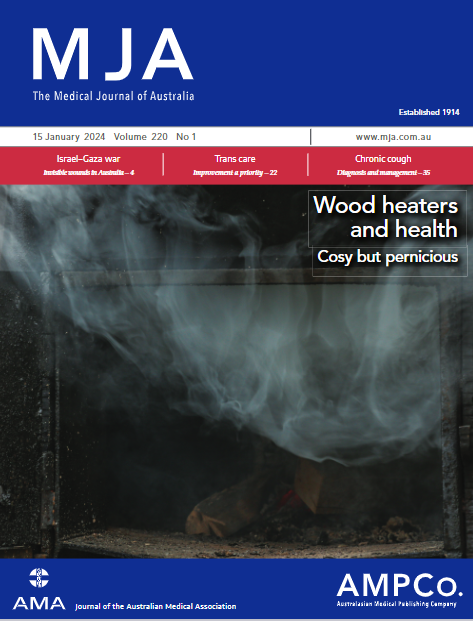Patient and carer experiences of hospital-based hybrid virtual medical care: a qualitative study
Abstract
Objectives
To understand patients’ and carers’ experiences of virtual medical care delivered into rural and remote hospitals.
Study design
Qualitative study using semi-structured interviews.
Setting, participants
Interviews were conducted between 7 June 2022 and 21 February 2023. Participants were people who had received a virtual medical service from the Virtual Rural Generalist Service (VRGS), and their carers, in rural and remote hospitals within the Western NSW Local Health District.
Main outcome measures
Acceptability of, access to, quality of and appropriateness of care provided by the VRGS.
Results
We interviewed 43 patients and carers about their experiences of VRGS services received in an emergency department or inpatient setting. About half of our participants thought that virtual medical care (supported by in-person nursing staff) was highly acceptable and equivalent to in-person care. For the remaining participants, virtual care was seen as being an acceptable alternative if in-person care was not available. Patients reported that the model met their immediate needs, even if the virtual delivery mode was not their preference. VRGS doctors were generally seen as skilled and personable, and acceptability of virtual care increased with more experience of it. A key perceived benefit of virtual care was increased access to medical care without the need to travel long distances. Hospital-based virtual care was not considered less appropriate for older adults or children.
Conclusions
Virtual care in a rural hospital setting, such as that delivered by the VRGS, is broadly acceptable to patients and carers. While most would prefer to have a doctor physically present, patients and carers are accepting of the need for virtual care to supplement in-person care in rural and remote areas. Patients and carers who experience hospital-based virtual care perceive that it can provide good quality medical care and meet many of their needs.

 求助内容:
求助内容: 应助结果提醒方式:
应助结果提醒方式:


